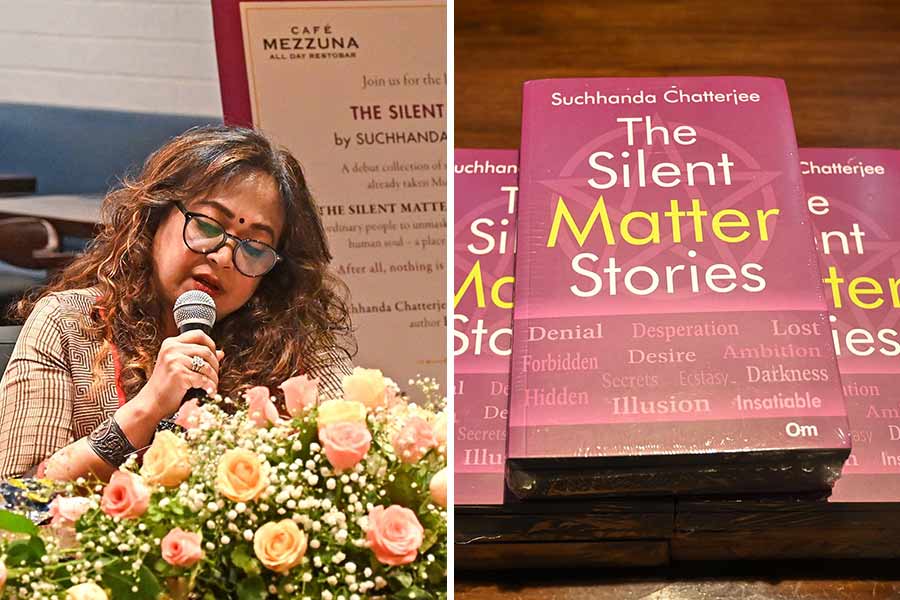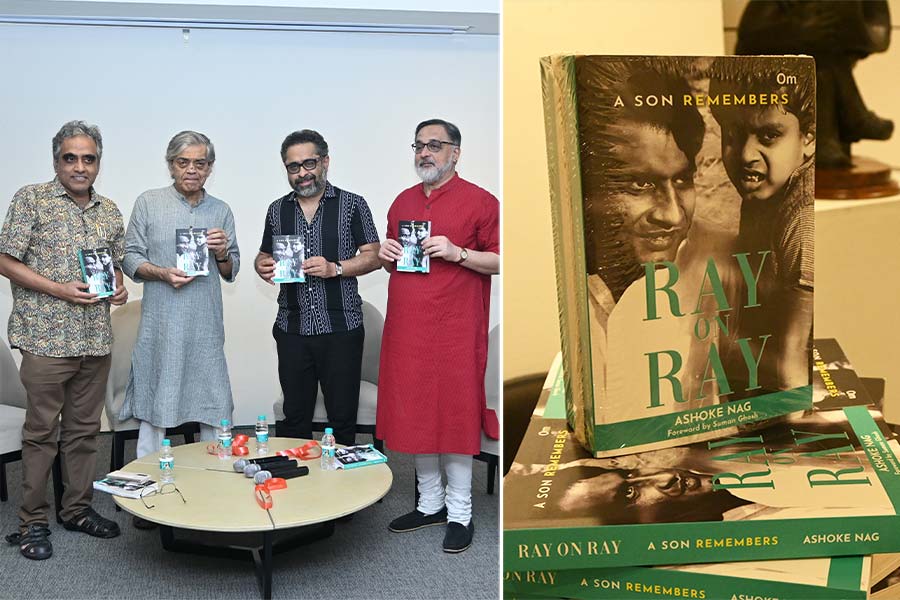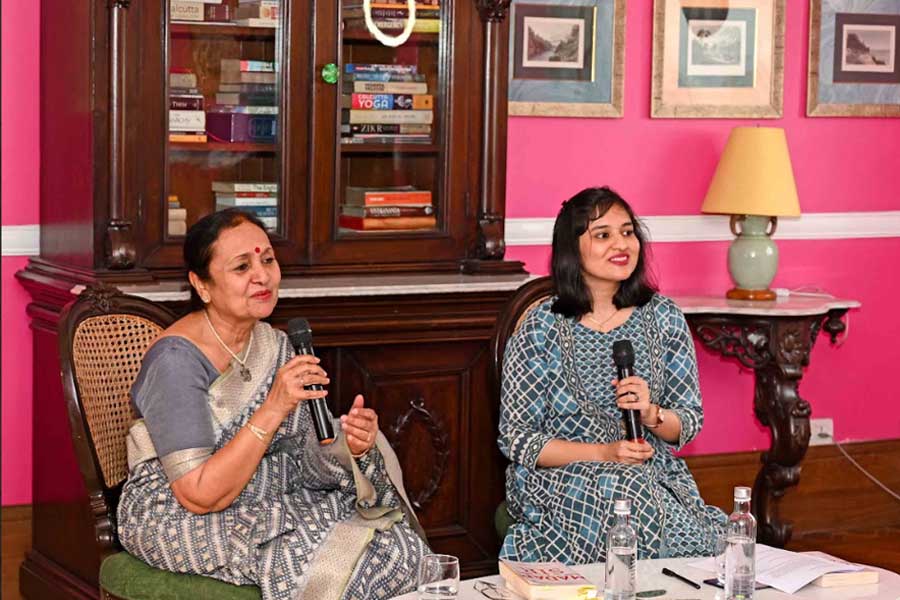Filmmaker and storyteller Suchhanda Chatterjee is no stranger to weaving memorable tales out of ordinary, quotidian details. This eye for detail, honed also by her experience in interior decoration, sets apart her debut collection of short stories, The Silent Matter (Om Books International), that pick up on everyday life and characters to create a world that is unique yet relatable. The book was launched at Cafe Mezzuna in Forum Mall on December 2 with Chatterjee, fondly known as Meenoo, in conversation with author Ramona Sen.
‘It’s only once I know how a story will end that I begin to write it’
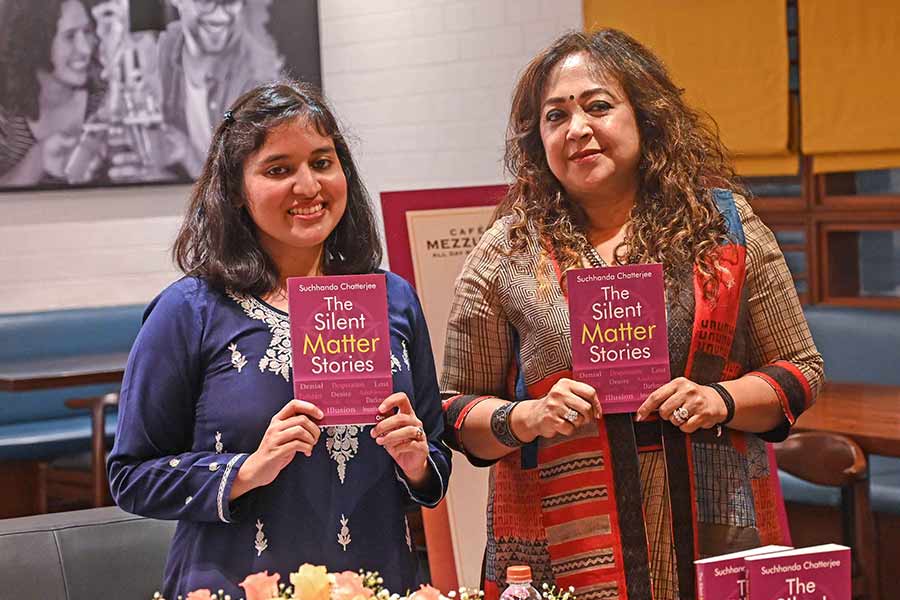
Ramona Sen, the moderator for the discussion, with Chatterjee
“I’ve always been fascinated by the shadows of the human mind,” said Chatterjee, answering a question on why she chose to write about human relationships in her collection. “These stories have taken shape in my head over time, with some having simmered for as long as 12 years.” Ideas, to Chatterjee, come in the form of lingering images — a stranger gripping a pole on a swaying metro, the expression of a friend describing how they like their paan. “I am an observer,” said Chatterjee. “I observe the environment around me, and it’s around these visual cues that I build characters and craft a storyline.” Her fascination translates into six stories that delve into the complexities of human relationships, unearthing emotions and equations that often go unnoticed in the rush of daily life.
Reflecting on the title of the book in accordance with Chatterjee’s unique narrative style, Sen spoke about the author’s background as a filmmaker adding to the cinematic appeal of her writing. “What stood out to me was her use of restraint,” said Sen. “She never tells you too much, allowing the reader to fill in the gaps and connect with the characters.”
For Chatterjee, writing is an art that she prefers approaching from back to front. “In a short story, the most important aspect is the ending — the twist that takes you by surprise. I rarely find myself deciding what the central theme of my story is going to be before I start writing it. It’s only once I know how a story will end that I begin to write it. Through my stories, I want readers to know that the truth doesn’t always have to remain hidden or silent. The truth, whatever it may be, is varied, and has many connotations and perspectives. It is a dark shadow within the recesses of the human mind, often filled with love and positivity, with unspoken needs and desires.”
‘I write in English to enable my stories to reach an audience not constricted by the confines of a regional language’
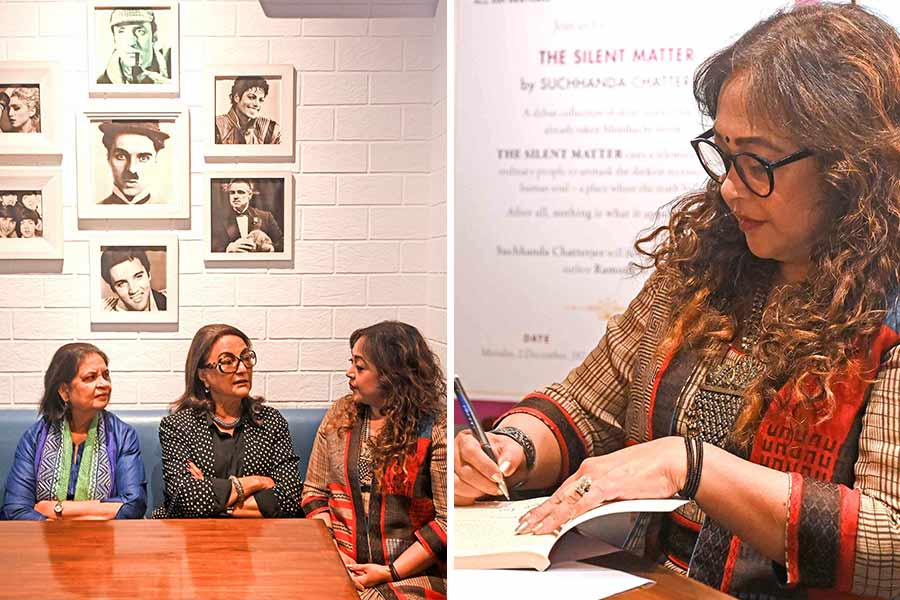
Chatterjee catching up with Aparna Sen after the formal conversation; (right) Chatterjee signing copies of ‘The Silent Matter’
Of her six stories, Mother is the closest to Chatterjee’s heart. It is based on a mother-child relationship, the tussles an adoptive relationship may face as opposed to a biological one. The author read out a stirring portion from the short story, giving everyone present a taste of what the book entails.
What followed was a rapid fire questionnaire by Sen. Suchhanda Chatterjee’s favourite medium of storytelling? Movies. What, in her view, takes more work — developing characters or visualising scenes? Visualising scenes. A film that makes her want to write? Disney’s Beauty and the Beast.
The floor was then opened to the audience, who proceeded to ask Chatterjee insightful questions, ranging from the practicalities of writing, to the way the cogwheels of her mind work as an author. To Aparna Sen’s question on Chatterjee’s choice to write in English instead of her mother tongue, Bengali, Chatterjee replied: “I write in English to enable my stories to reach an audience not constricted by the confines of a regional language.”
Chatterjee also touched upon what lies ahead for her — two feature films that are currently in the works. These films, written by the author, promise to be “larger than life”, for which Chatterjee is working with “some of the biggest names in the industry”.
As evening fell, an air of churning and contemplation of silent desires hung over Cafe Mezzuna. The session wrapped up with a few keepsake photographs of the two authors, while the audience members got their copies of The Silent Matter signed by Chatterjee.
